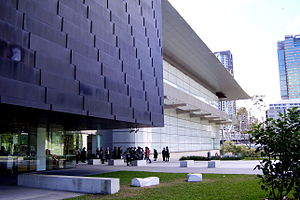
This will become one of the base documents for the ODBK Equality and Diversity Certification for Contemporary Art Spaces .This is a collective creation document where all people with an idea and interest of how to create equality and diversity in art museums for example can participate. This document pretends to be a legacy for all art institutions in the art world as a base to implement strategies and procedures in order to create equality and diversity in the selection of artists and artworks.
Click here to participate in the creation of this document
What does this long title mean?
With 'alignments' we understand the policies that have to be considered in order for decisions to be made in an art institution. With 'for curatorial and collection practices and processes' we mean the practices and procedures for the selection of visual artists shown in their physical or virtual space and/or with their name and/or represented and/or collected by the art institution. Similarly, there are two other aspects of art institutions that have to exhibit 'equality and diversity, both in terms of its employees and its visitors, this paper however will focus only on the exhibition of the two aforementioned concepts in regards to the artists exhibited by the evaluated institutions. With 'art institution' we mean all official or non-official institutions who are engaged in representing, collecting, and selecting visual artists to be shown in their physical or virtual space. This title for example can encompass museums, art galleries, private and public collections, biennials, triennials, and art fairs among others. Finally, by stating 'to ensure equality and diversity we highlight the goal and main ingredients that have to be taken into account to create and define all content in this document. We know that this goal will not happen overnight. But we want to describe a practical way for any art institution in the world to reach a high level of equality and diversity of the artists selected in a time frame between 3 to 7 years maximum.